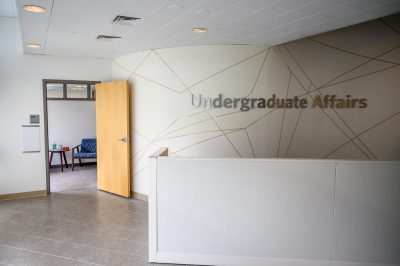The Boston University Undergraduate Research Opportunities Program (UROP) finalized their funding recipients for this summer.

About 75% of students who apply to UROP receive funding, said Melissa Johnson, associate director of UROP. They have received 294 applications for this summer so far.
“Most of our funding goes towards supporting students as a salary,” Johnson said. “So they’re basically doing this as a job and getting paid to do their research.”
Students can choose to work either 20, 30 or 40 hours per week over a ten-week period. They are paid $15 an hour based on Massachusetts minimum wage and receive their funds on a weekly basis.
Taylor Bolan, a freshman in the College of Arts and Sciences, is dedicating 30 hours a week to her project, an exploration in the literature of the different strategies Black families have currently and historically utilized to overcome adversity.
“[UROP’s funding] just makes the entire thing possible, not that I couldn’t have done it in my free time because I could have,” she said. “[However, without] the stress of working a full-time job over the summer and then going home to do this over the weekend, I think it’ll get done more efficiently and effectively with the funding.”
One goal of the UROP program is to “increase awareness” about other areas UROP funding can be used for in “any field,” said Molly Powers, the UROP Academic Program administrator.
Currently, about 70% of UROP’s funding goes toward STEM-related fields, but the program wants students to know funding is available for other fields as well, Johnson said.
“I think there is a misconception that research is only for students in the sciences [and] in the STEM fields, and that is absolutely not true,” Johnson said. “That is something we really are trying to get the word out about is that you can literally do research in any area on campus and get funding for it.”
Philip Haberkern, the faculty director of UROP as well as an associate professor of history, said UROP is hoping to work with non-STEM departments like classics, communication or business.
“We desperately, desperately want to fund students across the University and see how these sorts of different visions of research enrich our intellectual community as a whole,” he said.
Hanna Dworkin, a junior in CAS, is one of the students exploring a non-stem-related project. Her project focuses on creating a piece of literature addressing the college experience.
“BU is a profound research institution, and they do a great job of supporting their students and a lot of areas of study,” Dworkin said. “I’m doing philosophical research, which normally isn’t funded, and the fact that they’re providing funding for that is really cool.”
Daniel Cifuentes, an assistant professor of biochemistry and member of the UROP selection committee, said the UROP selection committee considers details, goals and timelines of students’ research projects when considering where to allocate funding.
“I particularly look for students that really own the project in terms of, they run the brand themselves,” Cifuentes said.
UROP also implemented an ambassador program this year where students who have conducted research through UROP previously can talk about their experiences and assist students who are new to the program, Powers said.
“I think it’s far more beneficial for the students to hear exactly from an undergrad what their experience was like and how they found their mentor and just answering questions that can sometimes seem overwhelming,” Johnson said.
Some concerns, however, said UROP could do more about pairing students with adequate advisors.
“I think UROP can maybe do a better job of partnering students with advisors, just because the advisor is a really crucial part of even pitching [a research project] in the first place,” Dworkin said.
Noah Barrow, a junior in CAS who received funding from UROP last summer for his research, said UROP has helped him achieve his long-term academic goals.
“It’s really nice to be able to live out what my childhood self was dreaming up because I always wanted to work in science and then a laboratory,” Barrow said. “I feel like UROP kind of gives us the opportunity to be able to do that at a more convenient price.”






















































































































